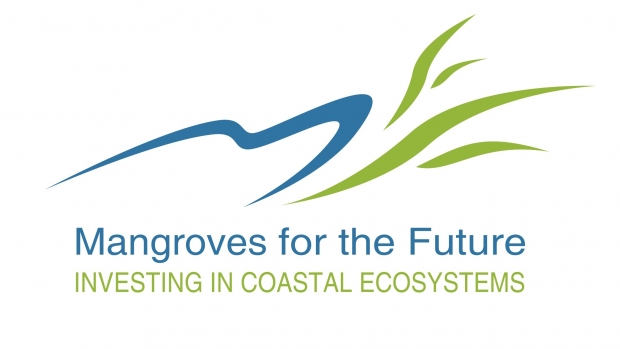Grants :: Large Grant Facilities :: Enhancing community and island ecosystem resilience through innovative technology and food security
Enhancing community and island ecosystem resilience through innovative technology and food security

MFF Logo © MFF
Objectives
The objective of the project is to model and test community mobilizations approaches that link and build resilience of fragile islandecosystem and safe guard local food sources in geographical areas of high coastal biodiversity and high climate change risk.
The project has three closely interrelated and specific objectives, namely:
(i) Increase quality and quantity of local food using new techniques resilient to groundwater salinity
(ii) Increase community knowledge, skills and understanding on how to live with the impacts of climate change
(iii) Develop a network through the Islands Women Committees (IWC), which supports and promotes resilient techniques
for ecosystem protection and climate change adaptation (including safeguarding of food sources).
These objectives will be achieved through a series of capacity building activities focusing on strengthening partnerships
and skills with the target communities and create the conditions for resilience, gender equity and ecosystem protection.
Since the Tsunami of 2004, much emphasis has been placed on rebuilding and development of infrastructure and services
and very little on capacity building, restoration of ecosystems and safeguarding of livelihoods.
Background
The project will seek direct and measurable benefits in three interrelated areas:
(i) Food security and livelihoods through development, testing and extension of innovative approaches to gardening and
market access;
(ii) Island Ecosystem resilience through broad-based education and training; and
(iii) Enhancing the role of women through organisational strengthening, networking and dialogue building.
The project is based on community research which highlights that remote and vulnerable communities have low capacity
resilience in living with climate change mainly due to no access basic services, knowledge gaps and limited capability
to organize, mobilize and network.
The overall objective with this project seeks to model and test community mobilizations approaches that link and build resilience of fragile island ecosystem and safe guard local food sources in geographical areas of high coastal biodiversity and high climate change risk. The project will in the Community research indicate that for activities for ecosystem based conservation, climate change and livelihoods in the Maldives to reach full potential; they must be guided by community evidence.
Target beneficiaries
The project will benefit local populations in 4 communities in the Baa Atoll region. Specific beneficiaries will be women
and target groups are local organisations including Island Women’s Committees (IWC), Island Councils and Atoll Councils.
The project will directly benefit at least 40 local groups and 10.000 people. In the longer term the project outputs can be
extended and replicated to other areas in the Maldives and in a broader sense to Small Islands Developing States (SIDS) in
the Indian Ocean, Caribbean and the Pacific.
Outputs
The project expects the following outputs:
- 1000 Livelihoods Training Manual and education resources development
- 90 Trainers trained
- 100 raised garden beds established
- 30% increase in participating communities vegetable production
- Schools-based climate change and ecosystem resilience programme
- Climate Change and Ecosystem Resilience Leadership Programme
- Develop of community-based ecosystem resilience plans
- Gender analysis and assessment of capacity of IWCs and Resilience
- Food Security Network facilitated by the IWCs
Country
Location
Baa Atoll - five islands in the North Province of the Republic of Maldives: Kudarilkilu, Kamadhoo, Kilhahdoo, Dharavandhoo and Maalhos
Topic
Duration
5th May 2010 to 30th Apr 2012
MFF Grant Amount
USD284,265
Co-financing Partner
The project has three partners: (i) The Environmental Protection Agency (EPA) (ii) Atoll Ecosystem-Based
Conservation of Globally Significant Biological Diversity in the Maldives’ Baa Atoll AEC project (iii) Islands Women’s
Committees (IWC).
The EPA is the government partner to the project and provides access to local authorities
and ensure that activities are complementary to policy frameworks and national development plans. EPA advocates
for “best practice’ developed through the project, which will become institutionalized within public institutions and frameworks.
The AEC project provides support and guidance and builds upon the existing work the AEC project has initiated in
the respective communities and Baa Atoll. This project compliments the 3rd strategy in the AEC project on relieving
livelihood-related pressure on biodiversity by enhancing reef fishery property rights and enabling local people to pursue
more sustainable, alternative livelihoods. By the end of the project, IWC shall be the community partner to the project.
IWCs are local women groups that are island-based, active and networked but could benefit from broad-based capacity building and technical support. Live & Learn has existing working arrangement with all the partners and much goodwill exists within this working arrangement.
Implementing Partner
Fathimath Shafeeqa
Country Director, Live & Learn Environmental Education, Maldives
Email: fathimath.shafeeqa@livelearn.org
www.livelearn.org